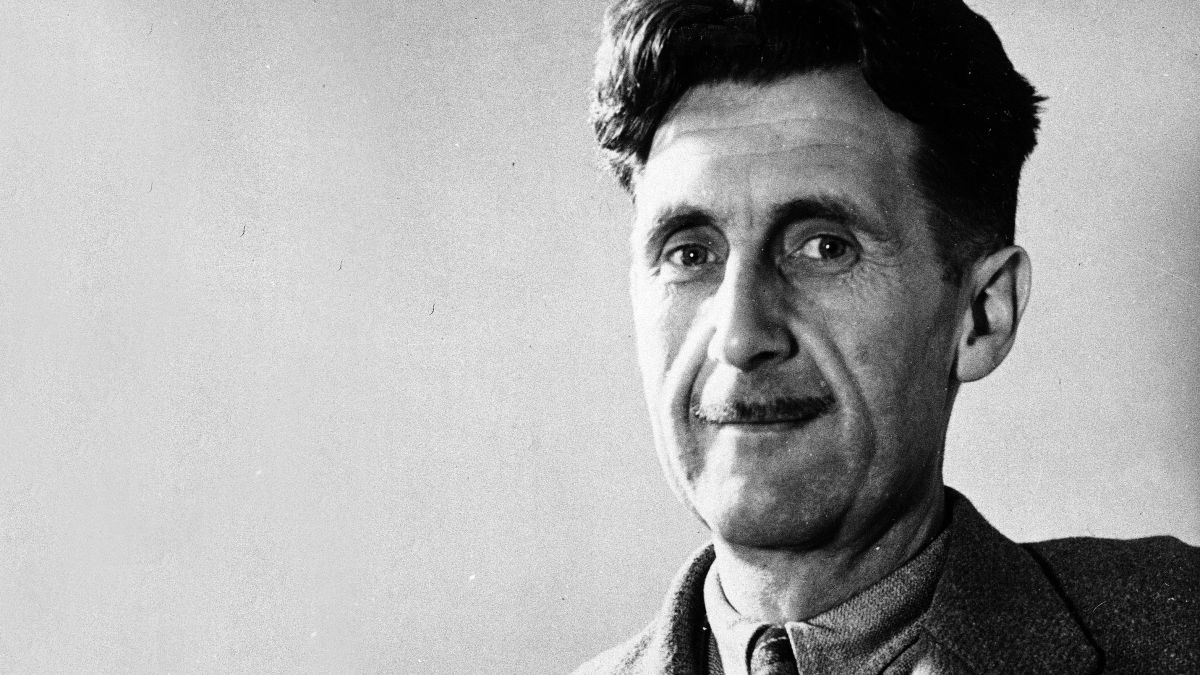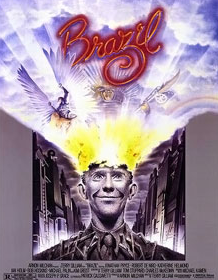
GEORGE ORWELL,1984
by June 10, 2023George Orwell’s “1984”. Produced in 1954.
Nineteen Eighty-Four is a classic dystopian novel by English author George Orwell. Published in 1949, it is set in the eponymous year and focuses on a repressive, totalitarian regime. The story follows the life of one seemingly insignificant man, Winston Smith, a civil servant assigned the task of falsifying records and political literature, thus effectively perpetuating propaganda, who grows disillusioned with his meagre existence and so begins a rebellion against the system. The novel has become famous for its portrayal of surveillance and society’s increasing encroachment on the rights of the individual. Since its publication the terms Big Brother and Orwellian have entered the popular vernacular. Orwell, who had “encapsulated the thesis at the heart of his novel” in 1944, wrote most of Nineteen Eighty-Four on the island of Jura, Scotland, during 19471948 while critically ill with tuberculosis. He sent the final typescript to his friends Secker and Warburg on 4 December 1948 and the book was published on 8 June 1949. Nineteen Eighty-Four has been translated into more than 50 languages. The novel’s title, its terms, its language (Newspeak), and its author’s surname are bywords for personal privacy lost to national state security. The adjective “Orwellian” denotes many things. It can refer to totalitarian action or organization, as well as governmental attempts to control or misuse information for the purposes of controlling, pacifying or even subjugating the population. “Orwellian” can also refer generally to twisted language which says the opposite of what it truly means, or specifically governmental propagandizing by the misnaming of things; hence the “Ministry of Peace” in the novel actually deals with war and the “Ministry of Love” actually tortures people. Since the novel’s publication “Orwellian” has in fact become somewhat of a catch-all for any kind of governmental overreach or dishonesty and therefore has multiple meanings and applications. The phrase Big Brother is Watching You specifically connotes pervasive, invasive surveillanceThe story occurs in London, the “chief city of Airstrip One”, itself a province of Oceania that “had once been called England or Britain”. Posters of the ruling Party’s leader, “Big Brother”, bearing the caption BIG BROTHER IS WATCHING YOU, dominate the city landscapes, while two-way television (the telescreen) dominates the private and public spaces of the populace. Oceania’s people are in three classes — the Inner Party, the Outer Party, and the Proles. The Party government controls the people via the Ministry of Truth (Minitrue), the workplace of protagonist Winston Smith, an Outer Party member. As in the Nazi and Stalinist regimes, propaganda is pervasive; Smith’s job is rewriting historical documents to match the contemporaneous party line, the orthodoxy of which changes daily. It therefore includes destroying evidence, amending newspaper articles, deleting the existence of people identified as “unpersons”.
<iframe width=”420″ height=”315″ src=”http://www.youtube.com/embed/ouUpXMae6Hs” frameborder=”0″ allowfullscreen></iframe>
Orwell was a British journalist and author, who wrote two of the most famous novels of the 20th century ‘Animal Farm’ and ‘Nineteen Eighty-Four’.
Orwell was born Eric Arthur Blair on 25 June 1903 in eastern India, the son of a British colonial civil servant. He was educated in England and, after he left Eton, joined the Indian Imperial Police in Burma, then a British colony. He resigned in 1927 and decided to become a writer. In 1928, he moved to Paris where lack of success as a writer forced him into a series of menial jobs. He described his experiences in his first book, ‘Down and Out in Paris and London’, published in 1933. He took the name George Orwell, shortly before its publication. This was followed by his first novel, ‘Burmese Days’, in 1934.
An anarchist in the late 1920s, by the 1930s he had begun to consider himself a socialist. In 1936, he was commissioned to write an account of poverty among unemployed miners in northern England, which resulted in ‘The Road to Wigan Pier’ (1937). Late in 1936, Orwell travelled to Spain to fight for the Republicans against Franco’s Nationalists. He was forced to flee in fear of his life from Soviet-backed communists who were suppressing revolutionary socialist dissenters. The experience turned him into a lifelong anti-Stalinist.
Between 1941 and 1943, Orwell worked on propaganda for the BBC. In 1943, he became literary editor of the Tribune, a weekly left-wing magazine. By now he was a prolific journalist, writing articles, reviews and books.
In 1945, Orwell’s ‘Animal Farm’ was published. A political fable set in a farmyard but based on Stalin’s betrayal of the Russian Revolution, it made Orwell’s name and ensured he was financially comfortable for the first time in his life. ‘Nineteen Eighty-Four’ was published four years later. Set in an imaginary totalitarian future, the book made a deep impression, with its title and many phrases – such as ‘Big Brother is watching you’, ‘newspeak’ and ‘doublethink’ – entering popular use. By now Orwell’s health was deteriorating and he died of tuberculosis on 21 January 1950
